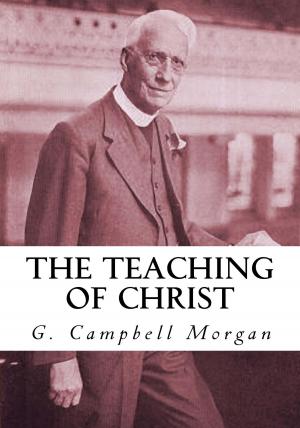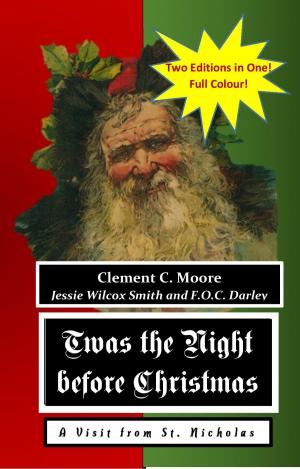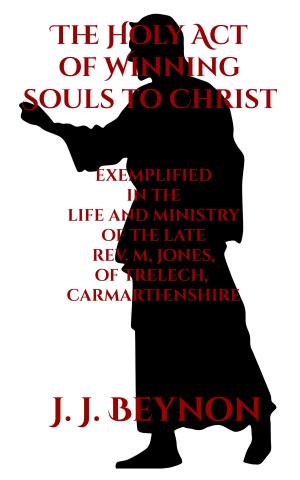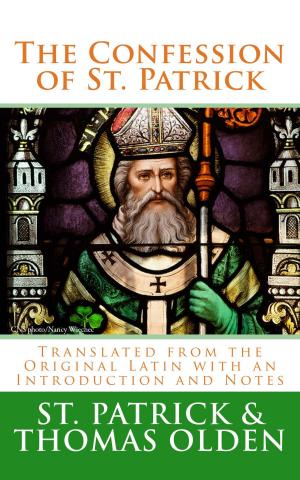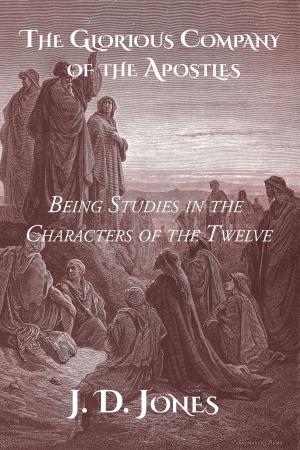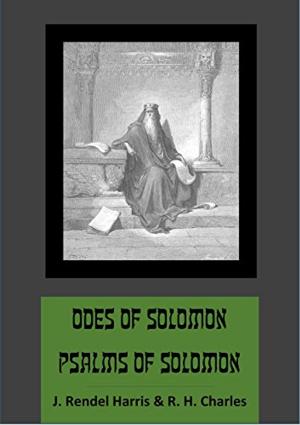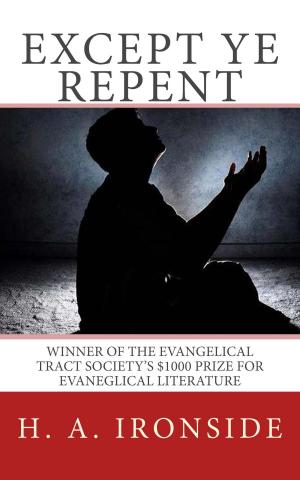New Testament Aprocryphal Writings
Nonfiction, Religion & Spirituality, Christianity, Church, Church History, Theology| Author: | Unknown, James Orr | ISBN: | 1230001917444 |
| Publisher: | CrossReach Publications | Publication: | September 20, 2017 |
| Imprint: | Language: | English |
| Author: | Unknown, James Orr |
| ISBN: | 1230001917444 |
| Publisher: | CrossReach Publications |
| Publication: | September 20, 2017 |
| Imprint: | |
| Language: | English |
The Canonical Gospels. As far back as we can trace them the four Gospels known as Canonical hold a place of honour and authority peculiar to themselves. Irenæus of Gaul (circa a.d. 175) recognises four, and only four, Gospels as the ‘pillars’ that uphold the Church (Adv. Haer. iii. 8). Origen, in the beginning of the next century (a.d. 220), speaks of them as ‘the four Gospels which alone are uncontroverted in the Church of God spread under heaven’ (Euseb., H. E. vi. 25). Justin Martyr, in the middle of the second century, narrates that the ‘Memoirs of the Apostles,’ which are called Gospels, were read every Sunday in the assemblies of the Christians (Apol. 66, 67). That these Gospels were those we now possess we can tell, not only from Justin’s description of them, and allusions to their contents (cp. Sanday’s Gospels in Second Century, chap. iv.), but from the harmony made of them by his disciple Tatian in his Diatessaron (now recovered in Arabic translations). Our four Gospels, and these only, stand at the head of the ancient Syriac (Peshitta), the Latin and the Egyptian versions (cp. Westcott and Hort), and of the old list known as the Canon of Muratori (circa a.d. 180). Within the Church, in short, our four Gospels, attributed by second-century writers to their present authors, had never any rivals.
Apocryphal Writings. It stands very differently, as respects origin, character and reception, with the Gospels, Acts and Apocalpyses known as ‘Apocryphal.’ These began to be produced (so far as known) in the second century, mostly in Ebionitic and Gnostic circles, and, with few exceptions, were repudiated and condemned by the Church. Only later, and in modified and expurgated forms, did their stories pass into the general Catholic tradition. The second century seems to have been a perfect hot-bed for the production of this class of writings. The heretical Gospel of the Egyptians is already quoted in 2 Clement (circa a.d. 140). Irenæus speaks of the sect of the Marcosians as adducing ‘an unspeakable number of apocryphal and spurious writings, which they themselves had forged, to bewilder the minds of the foolish,’ and instances the story, found in the Gospel of Thomas, of Jesus confounding the schoolmaster who sought to teach Him His letters (Adv. Haer. i. 20). Later tradition attributed the composition of many of the apocryphal writings (Pseudo-Matthew, Acts of Apostles) to a mythical Leucius, a disciple of the Apostles (cp. art. ‘Leucius,’ Dict. of Christ. Biog.). Eusebius gives a list of spurious and disputed books: ‘That we may have it in our power to know both these books (the canonical) and those that are adduced by the heretics under the name of the Apostles, such, viz., as compose the Gospels of Peter, of Thomas, and of Matthew, and certain others beside these, or such as contain the Acts of Andrew and John, and of the other Apostles, of which no one of those writers in the ecclesiastical succession has condescended to make any mention in his works; and, indeed, the character of the style itself is very different from that of the Apostles, and the sentiments, and the purport of those things that are advanced in them, deviating as far as possible from sound orthodoxy, evidently proves they are the fictions of heretical men; whence they are not only to be ranked among the spurious writings, but are to be rejected as altogether absurd and impious’ (H. E. iii. 25). Only a small part of this extensive literature remains to us, and in no case in its original form, but solely in later, and often much-altered recensions.
The Canonical Gospels. As far back as we can trace them the four Gospels known as Canonical hold a place of honour and authority peculiar to themselves. Irenæus of Gaul (circa a.d. 175) recognises four, and only four, Gospels as the ‘pillars’ that uphold the Church (Adv. Haer. iii. 8). Origen, in the beginning of the next century (a.d. 220), speaks of them as ‘the four Gospels which alone are uncontroverted in the Church of God spread under heaven’ (Euseb., H. E. vi. 25). Justin Martyr, in the middle of the second century, narrates that the ‘Memoirs of the Apostles,’ which are called Gospels, were read every Sunday in the assemblies of the Christians (Apol. 66, 67). That these Gospels were those we now possess we can tell, not only from Justin’s description of them, and allusions to their contents (cp. Sanday’s Gospels in Second Century, chap. iv.), but from the harmony made of them by his disciple Tatian in his Diatessaron (now recovered in Arabic translations). Our four Gospels, and these only, stand at the head of the ancient Syriac (Peshitta), the Latin and the Egyptian versions (cp. Westcott and Hort), and of the old list known as the Canon of Muratori (circa a.d. 180). Within the Church, in short, our four Gospels, attributed by second-century writers to their present authors, had never any rivals.
Apocryphal Writings. It stands very differently, as respects origin, character and reception, with the Gospels, Acts and Apocalpyses known as ‘Apocryphal.’ These began to be produced (so far as known) in the second century, mostly in Ebionitic and Gnostic circles, and, with few exceptions, were repudiated and condemned by the Church. Only later, and in modified and expurgated forms, did their stories pass into the general Catholic tradition. The second century seems to have been a perfect hot-bed for the production of this class of writings. The heretical Gospel of the Egyptians is already quoted in 2 Clement (circa a.d. 140). Irenæus speaks of the sect of the Marcosians as adducing ‘an unspeakable number of apocryphal and spurious writings, which they themselves had forged, to bewilder the minds of the foolish,’ and instances the story, found in the Gospel of Thomas, of Jesus confounding the schoolmaster who sought to teach Him His letters (Adv. Haer. i. 20). Later tradition attributed the composition of many of the apocryphal writings (Pseudo-Matthew, Acts of Apostles) to a mythical Leucius, a disciple of the Apostles (cp. art. ‘Leucius,’ Dict. of Christ. Biog.). Eusebius gives a list of spurious and disputed books: ‘That we may have it in our power to know both these books (the canonical) and those that are adduced by the heretics under the name of the Apostles, such, viz., as compose the Gospels of Peter, of Thomas, and of Matthew, and certain others beside these, or such as contain the Acts of Andrew and John, and of the other Apostles, of which no one of those writers in the ecclesiastical succession has condescended to make any mention in his works; and, indeed, the character of the style itself is very different from that of the Apostles, and the sentiments, and the purport of those things that are advanced in them, deviating as far as possible from sound orthodoxy, evidently proves they are the fictions of heretical men; whence they are not only to be ranked among the spurious writings, but are to be rejected as altogether absurd and impious’ (H. E. iii. 25). Only a small part of this extensive literature remains to us, and in no case in its original form, but solely in later, and often much-altered recensions.

